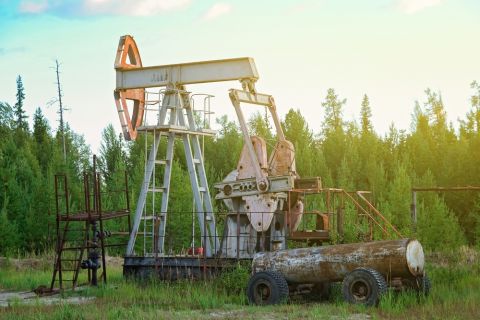Poland can expect its first commercial gas flows and a doubling of the number of shale wells this year, according to the chief executive officer of the nation’s largest provider of hydraulic fracturing services.
About 30 reservoirs will be drilled, up from 14 in 2013, thanks to improved techniques and regulations, Dennis McKee, founder and CEO of United Oilfield Services Sp. z o.o., said in an interview in Warsaw. The company, based in the Polish capital, was involved in 70% of the wells completed in the past eight months, he said.
Poland, ranked as Europe’s biggest holder of shale gas by the U.S. Energy Information Administration in 2011, has sought to revive exploration after foreign investors including Marathon Oil Corp. and Talisman Energy Inc. withdrew amid regulatory constraints and government plans to increase taxation. Prime Minister Donald Tusk in November fired the deputy minister in charge of drawing up shale gas regulations and nominated a new environment minister.
“Regulations have been very rigid and it’s improving now and I think it’ll improve more in the near future,” McKee said. “The industry will have some very good news in the next few weeks or next few months, we perform many jobs and we’re seeing gas flow.”
United Oilfield Services provided fracing to explorers including San Leon Energy Plc, PKN Orlen SA and 3Legs Resources Plc and its partner ConocoPhillips. Enterprise Investors, Poland’s biggest private-equity fund, bought a minority stake in United Oilfield Services for 21 million euros ($28.7 million) in 2012.
‘Stay Away’
There’s a chance Poland will see it’s first commercial shale gas well this year as about 40 new wells will be drilled, Environment Minister Maciej Grabowski said in an interview with Polskie Radio 1 on Jan. 9
The numbers of wells drilled fell by about 50% last year as foreign investors left. Two permits held by Eni SpA expired after the company didn’t extend them, leaving Italy’s biggest oil company with one license, the Environment Ministry said Tuesday.
“It takes a lot of money to do this kind of work and if you’re uncertain as an investor, you tend to stay away from it,” McKee said.
Grabowski may drop a plan to create a state-run fund to participate in shale gas exploration ventures to alleviate objections from investors and speed drilling, he said last month. Rules requiring investors to seek environmental permits if they wanted to drill deeper than initially declared were eased to cut the average eight-month wait for approval.
United Oilfield Services expects shale gas production in Poland can start in 2015.
“It will be about a seven- to 10-month lag from commercial discovery before things will be happening,” McKee said.
Recommended Reading
E&P Highlights: March 11, 2024
2024-03-11 - Here’s a roundup of the latest E&P headlines, including a new bid round offshore Bangladesh and new contract awards.
NAPE: Turning Orphan Wells From a Hot Mess Into a Hot Opportunity
2024-02-09 - Certain orphaned wells across the U.S. could be plugged to earn carbon credits.
Well Logging Could Get a Makeover
2024-02-27 - Aramco’s KASHF robot, expected to deploy in 2025, will be able to operate in both vertical and horizontal segments of wellbores.
Tech Trends: SLB's Autonomous Tech Used for Drilling Operations
2024-02-06 - SLB says autonomous drilling operations increased ROP at a deepwater field offshore Brazil by 60% over the course of a five-well program.
E&P Highlights: March 15, 2024
2024-03-15 - Here’s a roundup of the latest E&P headlines, including a new discovery and offshore contract awards.





